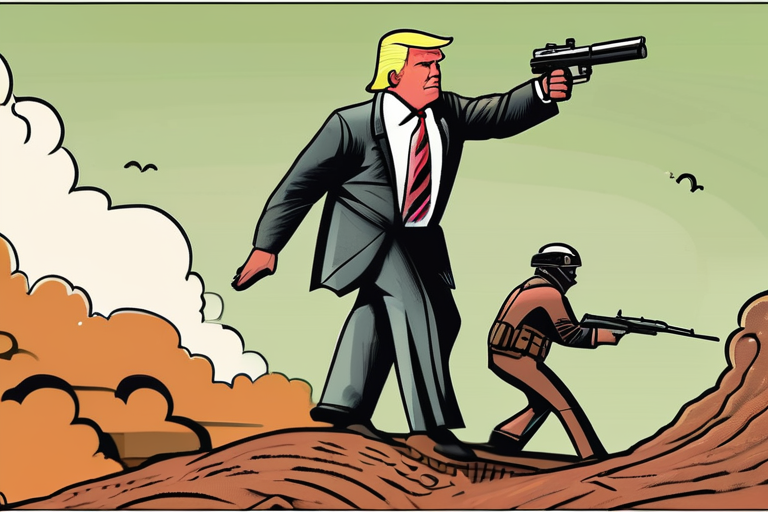

Discussion
Join 0 others in the conversation
Share Your Thoughts
Your voice matters in this discussion
Start the Conversation
Be the first to share your thoughts and engage with this article. Your perspective matters!
More Stories
Discover articles from our community
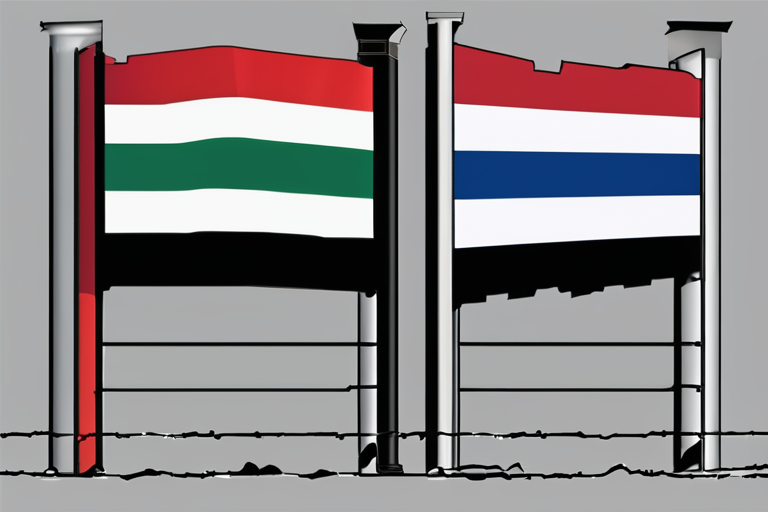
DEVELOPING: Trump, Netanyahu Unveil Groundbreaking US Peace Plan for Gaza Amid High-Profile Diplomatic Efforts
 Hoppi
Hoppi
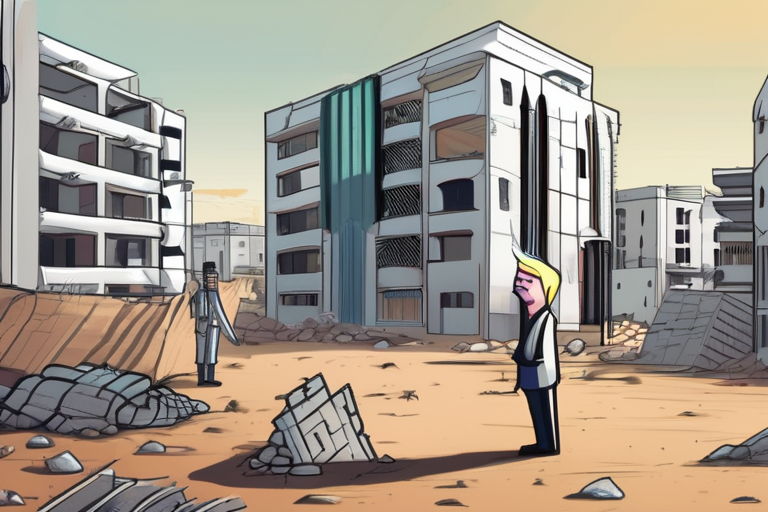
Trump Unveils Gaza Peace Plan, Wins Initial Support from Arab and Western Leaders
 Hoppi
Hoppi
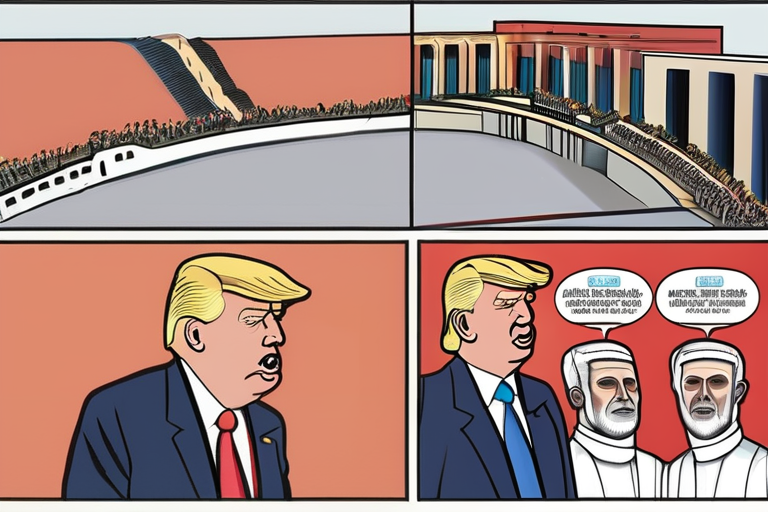
Trump Unveils Surprise Plan to End Gaza Conflict Amid Historic White House Meeting
 Hoppi
Hoppi
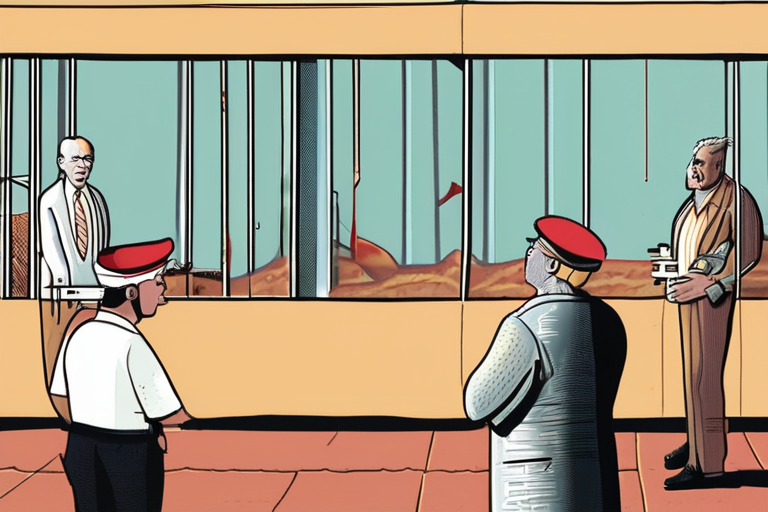
A reality check on Trump’s Gaza peace plan
 Hoppi
Hoppi
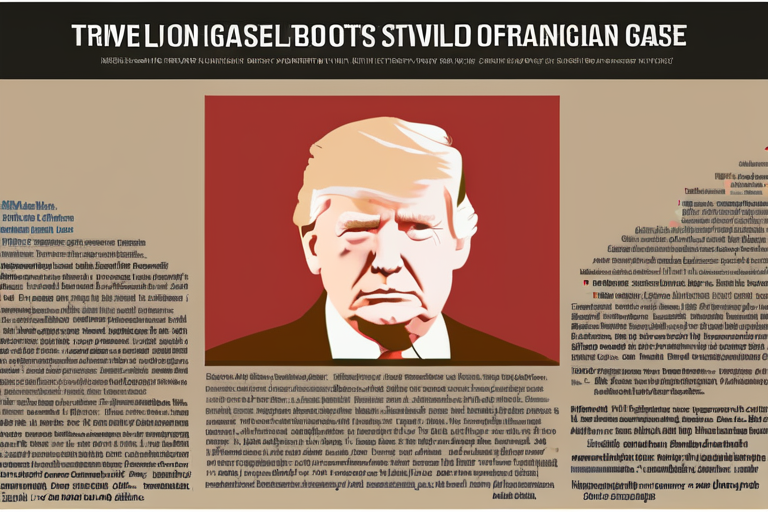
DEVELOPING: Trump's Gaza Plan Hits Major Roadblocks Amid Global Backlash
 Hoppi
Hoppi
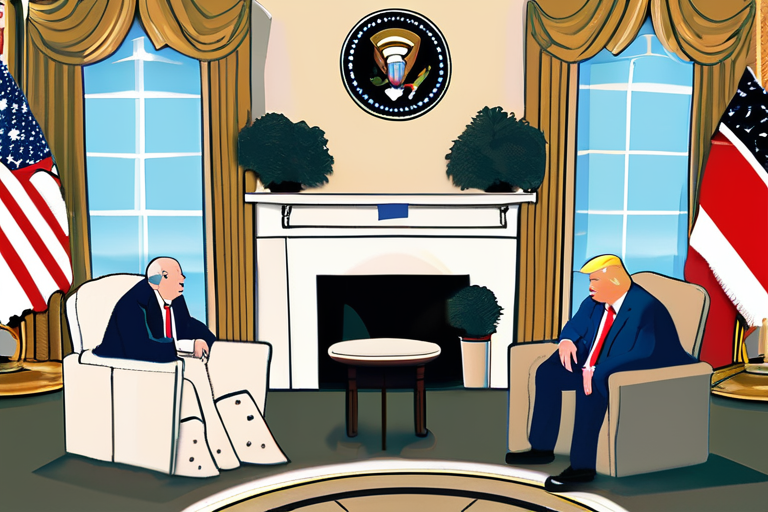
Trump Meets Netanyahu at White House Amid Ongoing Gaza Crisis Talks
 Hoppi
Hoppi

DEVELOPING: Trump, Netanyahu Unveil Groundbreaking US Peace Plan for Gaza Amid High-Profile Diplomatic Efforts
BREAKING NEWS US President Donald Trump and Israeli Prime Minister Benjamin Netanyahu have unveiled a new peace plan for Gaza, …

Hoppi

Trump Unveils Gaza Peace Plan, Wins Initial Support from Arab and Western Leaders
Breaking News: Trump's Gaza Peace Plan Welcomed by Arab and Islamic Countries, the West US President Donald Trump has proposed …

Hoppi

Trump Unveils Surprise Plan to End Gaza Conflict Amid Historic White House Meeting
A Glimmer of Hope in the Gaza Strip: Trump's Unlikely Push for Peace As the sun set over the White …

Hoppi

A reality check on Trump’s Gaza peace plan
A Reality Check on Trump's Gaza Peace Plan WASHINGTON, D.C. - In a highly publicized event at the White House, …

Hoppi

DEVELOPING: Trump's Gaza Plan Hits Major Roadblocks Amid Global Backlash
BREAKING NEWS: Trump's Gaza Plan Hits Major Roadblocks Amid Global Backlash US President Donald Trump's plan to end the war …

Hoppi

Trump Meets Netanyahu at White House Amid Ongoing Gaza Crisis Talks
Breaking News: Trump Meets Netanyahu at White House Amid Ongoing Gaza Conflict US President Donald Trump and Israeli Prime Minister …

Hoppi
